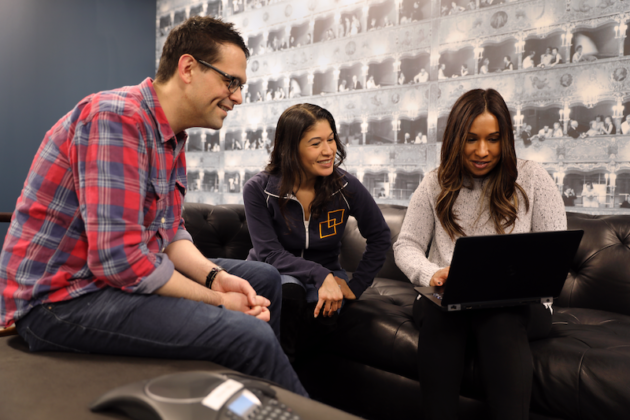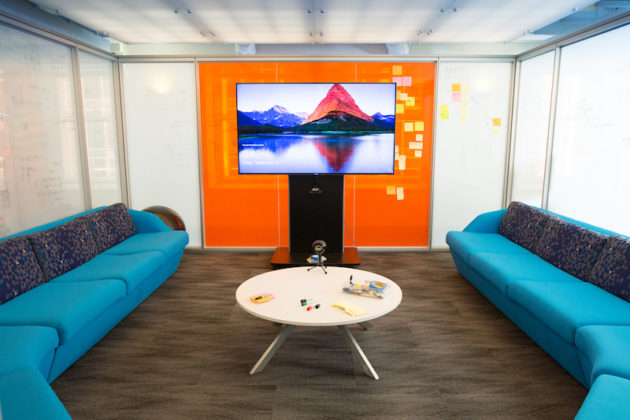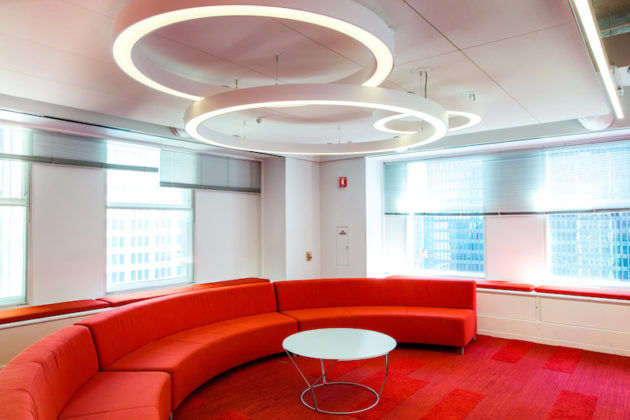As Relativity has matured from a startup to one of the top legal tech companies in the world, its office space has had to keep up as well.
Since its founding in 2001, the company has acquired more than 13,000 clients and hired more than 800 employees working in its offices in the U.S., U.K., Australia, China and Poland, as well as some who work remotely. To keep the more than 700 Chicago-based employees from feeling cramped, the company recently expanded into the 5th floor of its LaSalle Street headquarters, giving the fast-growing company a total of four floors of space in the Loop building.
Relativity’s customers include 199 of the top 200 law firms in the U.S., and more than 70 of the Fortune 100. Notable brands like Tesla, Bayer, NBCUniversal and EA use the platform to organize, interpret and act on data during legal proceedings and investigations, as well as review contracts and spot compliance issues before they become problematic.
In 2015, Relativity raised $125 million from Iconiq Capital, the only outside investment it has taken to date.
The company plans to continue bringing on employees as it expands its RelativityOne platforminto Canada, Hong Kong and Germany. To service new customers, the company is focusing its hiring primarily in its engineering group, but it’s also adding to the customer support, sales, marketing and other departments, Relativity’s Chief People Officer Dorie Blesoff said.
But of course, with a large group of workers comes a diverse set of workspace needs. So when it comes to the Relativity office space, the company has tried to create multiple workspaces for different methods of working.
Two years ago, Relativity decided to remove cubicles for its staffers, because the employees and management found them to be “very limiting,” said Luka deKelaita, the company’s global office services manager who designed the space and the new 5th floor. Instead, the company created modern spaces to fulfill various needs. The current space has an open office with rows of desks, private office spaces, open team meeting areas, walk-up meetup tables with Microsoft Surface Hubs, phone rooms for private phone calls, and transitional conference rooms with glass walls that can expand to hold up to 60 people.





